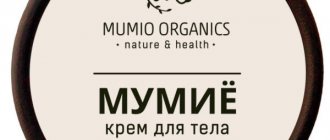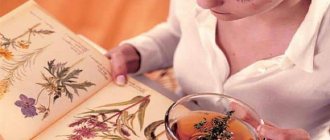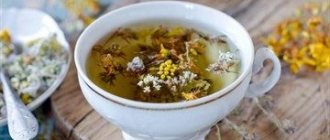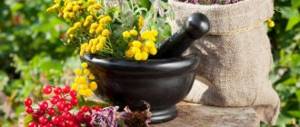Sometimes due to stress or simply during the cold season, many women suffer from a disease such as cystitis. This is an inflammation of the urinary tract that causes frequent and painful urination. The disease is quite unpleasant, and if it is neglected, it can lead to a simple inflammation leading to a real relapse. Many doctors do not deny the benefits of herbal decoctions, which serve as a diuretic and analgesic. For this reason, various herbs for cystitis can be as effective as medications.
Is it possible to cure cystitis with herbs?
Most often, inflammation of the bladder provokes hypothermia and the accompanying decrease in immunity. Pathogenic microbes are activated on the mucous membranes. They affect the walls of the organ and the ureters, causing inflammation, swelling, and pain. To get rid of symptoms, you need to eliminate their cause - pathogenic microflora, and the consequence - the inflammatory process.
It is impossible to fully influence all mechanisms of disease development using folk remedies. Therefore, if you have cystitis, you need to consult a urologist and undergo a course of antibacterial and anti-inflammatory therapy. Herbal treatment will speed up the healing process, help completely eliminate the disease and prevent the development of chronic cystitis. However, it is also better to discuss the use of plants with your doctor.
Self-use of herbs (instead of proper treatment) for cystitis leads to complications - pyelonephritis, chronic inflammation of the bladder.
Medicinal properties of herbal remedies
Herbs that treat cystitis act in several directions at once:
- have an anti-inflammatory effect;
- have an antimicrobial effect;
- promote the removal of pathogenic bacteria;
- relieve spasms and pain;
- strengthen local immunity.
The best therapeutic effect is provided by herbal preparations, the components of which enhance the effect of each other.
In acute and chronic course of the disease, different herbs are used for cystitis.
Medicinal plants with antibacterial, diuretic and anti-inflammatory effects are intended for oral administration. Traditional medicine also recommends taking medicinal baths with them to relieve symptoms.
What herbs are used
Many plants can have a beneficial effect on overall health and help in the treatment of cystitis. It is important to choose those herbs that specifically affect the urinary system.
Among them are:
- with anti-inflammatory effect;
- hemostatic;
- diuretic;
- general strengthening (vitaminizing);
- antispasmodic.
You need to choose a medicine taking into account the prevailing symptoms of the disease and individual sensitivity to plants. Before use, it is important to make sure that the person is not allergic to the medicinal herb.
Diuretics
Herbal diuretics irritate the kidney structures and increase urine formation.
This effect is appropriate for cystitis because:
- prevents stagnation in the bladder (and the proliferation of microbes);
- prevents the upward spread of infection to the ureters and kidneys;
- bacteria are mechanically “washed out” from the urological system.
Diuretic herbs are contraindicated in people with kidney failure. They should be treated with caution if the patient suffers from urolithiasis (with increased urine output, the movement of sand or stones may become more active).
Among the herbs with a diuretic effect, the most effective for cystitis are:
- bearberry leaves,
- cowberry,
- half fell,
- horsetail,
- Dill seeds.
Knotweed, St. John's wort, and birch gently enhance kidney function.
Anti-inflammatory
Herbs relieve inflammation by improving local blood circulation, the action of tannins and flavonoids. Some of them stop the production of neurotransmitters responsible for supporting the infectious process. Some plants supply the body with useful substances, thereby accelerating regeneration mechanisms.
Herbs with anti-inflammatory effects:
- chamomile flowers,
- dioecious series,
- yarrow,
- marshmallow rhizomes,
- liquorice root,
- flax seeds.
Separately, it is worth mentioning plants with antispasmodic properties. They eliminate pain in the abdomen and pain in the groin during urination.
Herbal antispasmodics include:
- peppermint,
- coltsfoot leaves,
- corn silk,
- calendula flowers,
- linden trees
The listed representatives of the flora are safe and can be used without a doctor’s prescription. However, you should not expect from them an effect equal to painkillers. Herbs have a gentle, cumulative effect, which helps reduce the dose of analgesics.
Antibacterial
Plants whose chemical components inhibit the proliferation of microorganisms have antimicrobial properties. It is important that their activity is maintained even after transformations in the human body (for example, bearberry contains arbutin, the isomers of which inhibit bacteria). Essential oil (fragrant) herbs have an antimicrobial effect, thanks to the volatile components in the composition.
The best herbal uroantiseptics are recognized:
- juniper,
- fir,
- pine,
- bearberry,
- bird knotweed.
The effect of natural antibiotics is not comparable to chemical ones. Herbs only slow down the growth and reproduction of microbes, but do not kill them. A short course of use can lead to a recurrence of cystitis, since the infection will not be completely destroyed.
Herbs for hematuria
Inflammatory changes in the mucous membrane of the bladder lead to damage to small vessels and blood entering the urine. It takes on a scarlet color or darkens. In severe cases, blood clots are passed along with the urine.
In such a situation, you need to give up herbs with an irritating effect (horsetail, half-fallen). It is better to supplement the treatment of cystitis with plants with hemostatic (viburnum, nettle, parsley, elecampane), restorative (rose hips, currants) and healing (lovage, woodlice, plantain) properties.
Side effects and overdose
Before using herbal remedies, you must carefully study the composition. In case of individual intolerance to one or more components, it is recommended to replace the product with an analogue.
The diuretic effect of herbs can provoke a violation of water-salt metabolism, which leads to a reduced concentration of potassium or sodium in the blood.
Some medicinal plants lower blood pressure (thyme), may be harmful in the presence of kidney stones (horsetail), and can increase blood clotting and the risk of developing thrombophilia (yarrow). Constantly exceeding recommended doses can lead to exacerbation of the inflammatory process in the urinary system.
Herbal infusions
Doctors and practitioners of alternative treatment advise combining the beneficial properties of plants and forming collections from them. For high-quality treatment of the disease, the complex effect of drugs (at the same time anti-inflammatory, healing, antimicrobial, diuretic) is important. To do this, you can mix herbs for cystitis from different groups or purchase a ready-made collection (urological, renal, Nephrophyte).
When using plant mixtures, you must follow these rules:
- the components are mixed in equal proportions;
- herbs with antagonistic (opposite) effects should not be combined;
- It is better to buy ingredients at a pharmacy rather than at the market.
Popular ready-made mixtures for the treatment of bladder and kidneys are Cystophyte, Fitonephrol, Baikal tea (number 9).
What you need to know
Treatment of cystitis in women, children or men is the fight against the disease. Therefore, any procedure used must not cause harm to the body. "Grass differs from grass." Each plant has its own positive and negative properties. They will help one patient, but in another case they may do harm.
To prevent cystitis from harming the body, you should listen to the following expert advice before using any herbal collection or infusion:
- Before using herbal remedies, tea or other folk recipes, you need to study the properties of each component separately. It is possible that some of them can be harmful, for example by causing an allergic reaction.
- When using herbs for cystitis in women or men, you should not purchase unfamiliar formulations. If this plant is unknown, you should seek help from a pharmacist or doctor. Some medicinal herbs that do not grow in our country, or rather, their effects on the body, may be poorly studied by domestic specialists.
- When collecting herbs for the treatment of cystitis in women or men on your own, you should choose the right places. This should be an area away from roads and industrial facilities.
Particular attention should be paid to the storage of herbs and infusions. When dry, raw materials should be kept in a dry and dark place. If the product is water-based, it is stored in a glass container.
Recipes with herbs for cystitis
The most effective way to take natural medicines is by mouth. It is important to follow the dosage of the herb and the method of preparing the extract. Decoctions are prepared from coarse plant materials (bark, roots, leathery leaves, fruits), and infusions or teas from delicate plant materials (flowers, buds). To accelerate the manifestation of results, internal use is combined with external use (baths are made).
Decoctions
To properly treat cystitis, you need to prepare herbal extracts in a water bath. When boiling over an open fire, beneficial substances are lost. The ratio of ingredients is a tablespoon of raw materials per glass of water.
Effective recipes:
- Bearberry leaves. The raw materials are poured into a glass or enamel container and poured with boiling water. Place in a water bath and heat under the lid for 30 minutes. Afterwards they filter and squeeze out the grass. Fill with drinking water to a volume of 200 ml. Take a tablespoon up to 6 times a day.
- Horsetail grass. The crushed plant is poured with boiling water and simmered in a bathhouse for 15 minutes. After 45 minutes (after complete cooling), the broth is filtered and brought to the initial volume with water. Drink 50 ml 4 times a day.
- Plant collection. Combine lingonberry leaves, birch buds, and juniper berries. It is advisable to grind the collection until smooth. Pour a spoonful of the mixture with cold water. Heat in a bathhouse for 20 minutes, filter. Take a third of a glass 3 times a day.
Infusions
To treat cystitis, you need to prepare fresh herbal medicine every day. The plants can be brewed like tea. It is better to pour rough raw materials and mixtures and keep them in a thermos. Since the infusions are less concentrated, a larger volume of extract will have to be prepared per day. Recommended proportions are 2 tablespoons per 1 liter of water.
The recipes are as follows:
- Corn silk. The stigmas are poured with boiling water. Cover, wrap, leave for 2 hours. After straining, take sips throughout the day.
- Juniper fruits. It is better to prepare the remedy in the evening. The fruits are poured into a thermos, poured with boiling water, and left for 8-12 hours. After straining, take a glass 4 times a day.
- Liquorice root. The crushed parts are poured into a saucepan, poured with a liter of boiling water, placed on low heat, and brought to a low boil. Pour the mixture into a thermos and leave for 10 hours. Drink a quarter glass every 2 hours.
Natural medicines should be taken regularly, with a minimum course of 10–14 days. The exact timing of therapy should be indicated by the doctor.
Baths
Therapeutic baths are water procedures using special solutions or plant extracts. The local effect of beneficial extracts provides an anti-inflammatory effect for the mucous membranes. Under the influence of heat, spasms and painful sensations are eliminated.
To prepare a bath, you will need a basin with a capacity of 5 liters, warm water (at a comfortable temperature for the body), and a concentrated herbal infusion.
Suitable for thermal procedures for cystitis:
- lovage,
- series,
- chamomile,
- St. John's wort,
- valerian.
You can brew any of the herbs yourself or mix them together. To prepare the concentrate, pour 100 g of raw material with 2 liters of boiling water, cover with a lid, and let it brew for 2-3 hours.
Before use, strain, pour into a basin, and dilute with warm water to an acceptable temperature. You can add a couple of drops of essential oil of fir, juniper, pine, eucalyptus or tea tree.
During the procedure, you need to sit in the pelvis so that the suprapubic area of the abdomen is under the solution. It is important to monitor the temperature - the water should not be cold or hot. Exposure time is 10–15 minutes. After the bath, you should put on warm socks, drink herbal tea and go to bed.
Herbal preparations
You can buy ready-made natural medicines at the pharmacy. Their advantage is convenience - the drug is ready for use, standardized, and has an optimal concentration. To ensure a therapeutic effect, you should simply drink the product according to the instructions.
Popular natural-based pharmaceuticals:
- Canephron (available in drops and tablets);
- Rowatinex;
- Phytolysin paste (for oral administration);
- Urolesan;
- Cystenal.
Before using such products, it is better to consult a doctor, as herbal components can provoke allergic reactions. The timing of therapy and dosage are important, which the specialist will select individually.
Features of application
The diuretic effect is associated with increased removal of fluid and salts from the body. When using herbs with a diuretic effect, the patient must drink the daily amount of fluid and eat properly.
If plants are used for a long time, you should consult a doctor about taking medications containing potassium and magnesium (Asparkam, Magnikor, Kalimin). With frequent urination, a deficiency of these elements develops. It leads to seizures, blood pressure disorders, and heart rhythm disturbances.
In pregnant women
Pregnant women should fight cystitis only under the supervision of a doctor. Self-medication with drugs or herbs is unacceptable. Some of them can interfere with blood circulation, stimulate contractions of smooth muscles (which can lead to premature birth), and negatively affect the development of the child in the womb.
Cranberry is considered safe during pregnancy. The expectant mother can drink fruit drinks and compotes from it without a doctor’s prescription and without quantitative restrictions. In addition to a slight diuretic effect, the berry provides the body with vitamins and minerals, strengthens the immune system and improves metabolism.
For children
In pediatric practice, herbs are also used against cystitis. However, they cannot be used as self-medication. Children develop complications of infectious diseases much faster, and improper therapy can lead to irreversible consequences.
Pediatricians more often prescribe natural-based medications for children (due to ease of dosing and evidence of safety). The drug Canephron is especially popular. It is recommended even for babies in their first year of life. The composition includes extracts of centaury, lovage, rosemary.
Contraindications
Herbal medicine has virtually no contraindications. However, there are some medicinal plants that should be used with extreme caution.
For example, horsetail contains silicon particles. They are able to irritate the walls of the bladder, which gives the desired diuretic effect. Therefore, in case of cystitis with blood, these crystals can lead to increased bleeding.
It is better not to use goldenrod for people suffering from glomerulonephritis.
If swelling appears on the legs or blood pressure increases, you should immediately exclude this herb from the herbal collection.
In addition, when using medicinal herbs, it is important to consider the risk of allergic reactions. And at the first symptoms, stop taking it.
Prevention of cystitis with herbs
General strengthening plants will help prevent bladder problems. To prevent relapses of chronic cystitis, they are taken on a regular basis.
These include:
- rose hip,
- currant,
- cranberry,
- echinacea,
- lemongrass,
- eleutherococcus,
- ginseng.
The listed plants can be brewed with tea or drunk in pure form in courses. People with chronic pathologies should first consult a doctor. It is very useful to eat greens - parsley, dill, celery, spinach. Leafy vegetables contain many vitamins and help keep your immune system in good shape.











